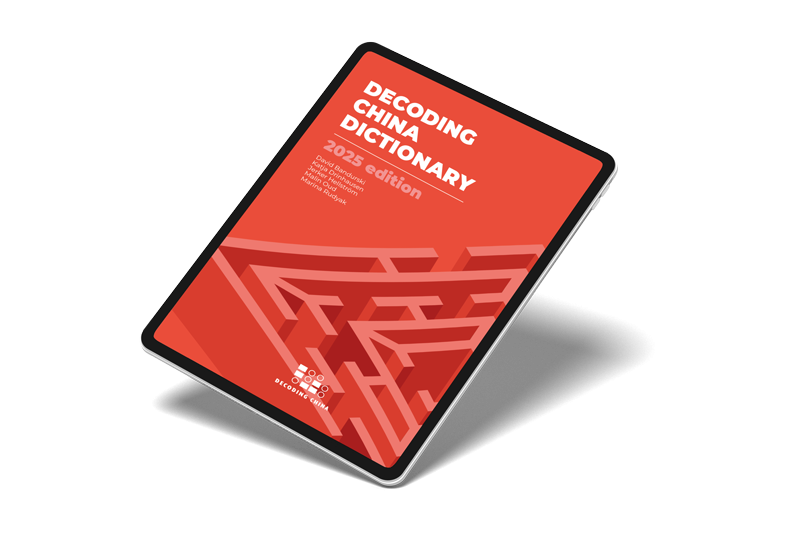
KEY TERM
Responsible Research
[ 负责任研究 ]
[ 负责任研究 ]
Responsible Research

“Responsible research” refers not only to scientific integrity, but serving national development and technological self-reliance – casting researchers as agents of state-led progress and placing national goals over academic freedom.
Brief
The 2018 UNESCO Recommendation on Science and Scientific Researchers defines responsible research as a practice that upholds ethical, social, ecological, and scientific responsibility. It calls on researchers to minimise harm to human subjects and the environment, manage resources sustainably, and ensure informed consent and appropriate crediting of contributions. The document also emphasises the importance of academic freedom, open access to knowledge, and the protection of human rights as integral to responsible scientific conduct. Some countries have also discussed responsible research in terms of economic security, including the United States and Germany.
China actively participates in international debates on responsible research, for example through the 2023 Guidelines for Responsible Research Conduct issued by the Ministry of Science and Technology (MOST). However, its domestic discourse emphasises a distinct understanding. Responsible research in the Chinese context is closely tied to the notions of “research integrity” (科研诚信) and the fight against “research misconduct” (科研不端行为), with strong emphasis placed on disciplinary mechanisms and moral conduct. At the same time, responsibility is also framed in terms of scientists’ contribution to national development, modernisation, and technological self-reliance – positioning researchers as agents of state-led progress.
Analysis
The Chinese debate on responsible research emerged in the early 1990s in response to a series of plagiarism scandals. This led state-affiliated research institutions to issue codes of conduct, framing “scientific ethics” (科学道德) as key for both national progress and security. The Chinese Academy of Sciences’ (CAS) 2001 Code of Scientific Ethics, for instance, emphasised researchers’ obligation to support technological progress and safeguard national, information, ecological, environmental, and health security—with national security listed first. MOST’s 2006 Measures for Handling Scientific Research Misconduct framed research integrity as essential to achieving China’s strategic goals of independent innovation, economic and social development, national defence capabilities, and China’s rise as a global science and technology power.
From the early 2010s, the term “responsible science and research” (负责任(的)科学研究), along with variations of “responsible research and innovation” (负责任的研究与创新), began to enter the Chinese discourse, partly inspired by the European Union’s Responsible Research and Innovation (RRI) policy. The National Science and Technology Plan of the 13th Five-Year-Plan (2016-2020) marked the first official mention, framing “responsible research and innovation” as a key to the “construction of socialist culture”. Although the Plan advocated critical thinking and academic debate and freedom, it also emphasised researchers’ duties: social responsibility (社会责任), serving the motherland (报效祖国) and embodying core socialist values and good morals.
This framing was reinforced at the 2016 National Conference on Science and Technology Innovation, where Xi Jinping emphasised that researchers should not only pursue knowledge, but apply scientific and technological achievements to solve problems and realise the great cause of modernisation – “write your papers on the motherland!” The slogan has since been frequently repeated by Xi Jinping and widely cited in official and academic discourse.
Between 2018 and 2023, the CCP issued guidance further institutionalising this understanding. This includes: Scientific Research Integrity (2018), focusing on preventing fraud; on the Spirit of Scientists (2019), promoting patriotic research ethics; and, on the Governance of Science and Technology Ethics (2023), which introduced new review mechanisms in sensitive fields like artificial intelligence (AI) and biotechnology.
The Covid-19 pandemic reinforced the official discourse on state-led “responsible innovation”, with calls for policy-makers to define research priorities. Innovation, the argument goes, should be planned – not be left to the market or individual researchers – because it must serve public rather than individual interest. In the context of COVID-19, this meant that research was not primarily about understanding the virus, but about serving the people and advancing national goals.
While MOST’s 2023 new Guidelines for Responsible Research Conduct draw on international practices and devoting an extensive part to regulating AI, they require institutional approval before publishing major breakthroughs and extend research oversight to enterprises. The guidelines have been updated several times but the initial message that responsible research serves self-reliance and China’s rise as global science superpower, prioritising national goals over academic freedom.
How to cite this article:
Research related to this term was supported by:

Related Articles That Might
Interest You


“The Cooperation Principle” – Wang Yi Receives Sweden’s Foreign Minister in Beijing





